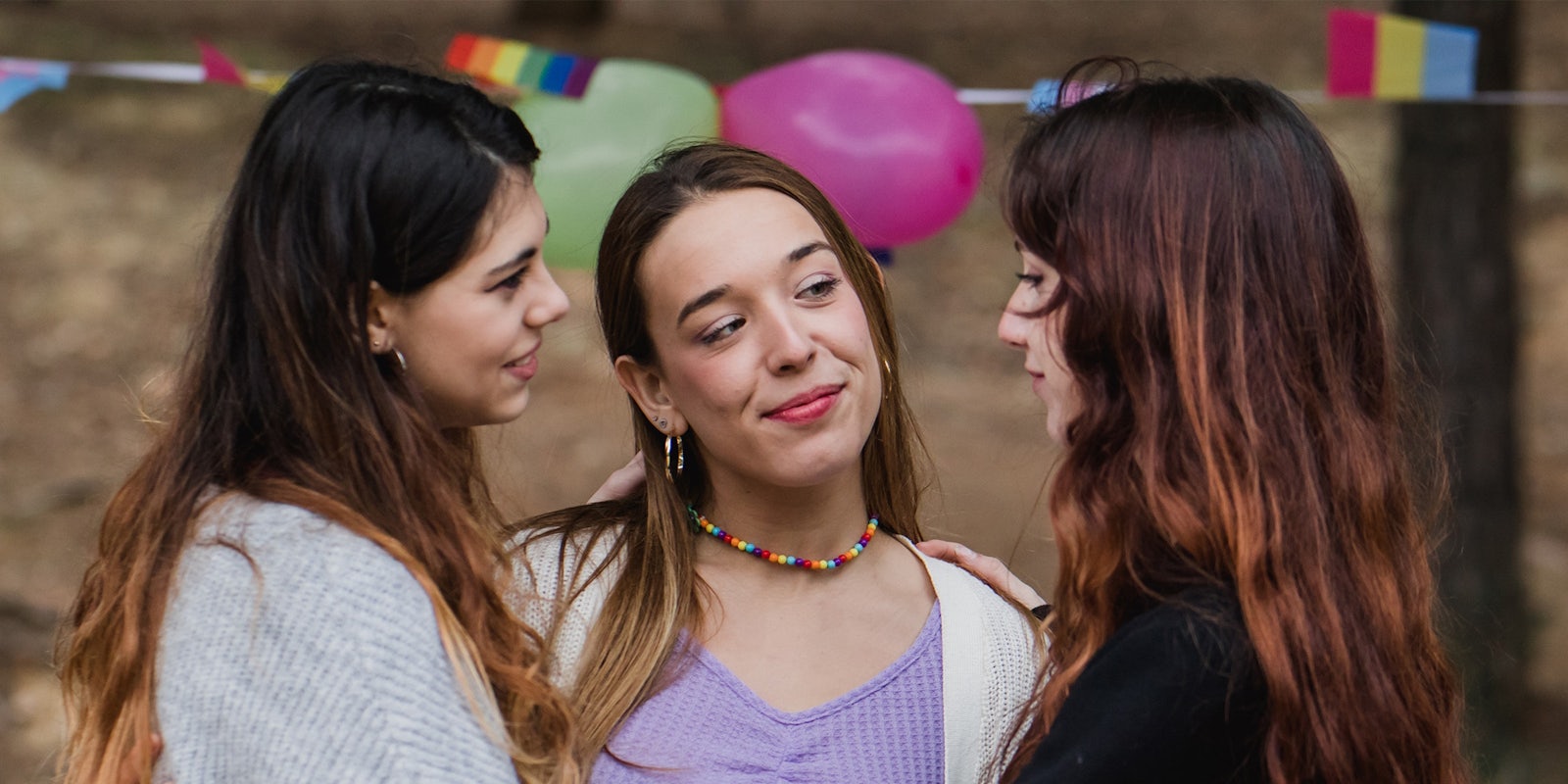Since Facebook’s inception in 2004, users have been able to share their relationship status on their profiles. Options include single, married, in a relationship, in a domestic partnership or civil union, separated, divorced, and widowed, among others, and Facebook gives users an opportunity to “tag” their partner.
You can also mark your relationship status as “in an open relationship,” which the Organization for Polyamory and Ethical Non-Monogamy (OPEN) sees as “limited recognition of non-monogamous relationships,” or relationships that include more than two people. Non-monogamous Facebook users still can’t tag more than one partner in their profile, nor can Facebook users indicate that they are in more than one relationship at a time.
OPEN, which launched in April, wants that to change that.
The organization has penned an open letter to Facebook’s Tom Allison, who runs Facebook’s app, asking that the site’s relationship status feature be updated to include people who are in relationships with more than one other person.
The letter, which was sent to Facebook on Thursday, says Facebook is contributing to discrimination against non-monogamous people by not allowing its users to tag multiple partners and indicate that they are in multiple relationships, which “[perpetuates] the social stigmas around the validity and authenticity” of non-monogamous relationships.
Types of non-monogamous relationships include—but are not limited to—an open relationship, wherein one or more partners in the relationship have romantic and/or sexual relationships with other people; a polycule, or a group of more than two people who are in a relationship with only each other, all together; or a “closed V,” which means one person is in a relationship with two people, but their two partners are not in a relationship with each other.
One in five adults in the U.S. and Canada have engaged in a consensually non-monogamous relationship in their lifetime, according to the Committee on Consensual Non-Monogamy, a division of the American Psychological Association.
OPEN’s letter was signed by non-monogamist activists and personalities, including Amanda Wilson of the polyamorous dating app #open, Dedeker Winston of the popular love and relationships podcast Multiamory, and Brett Chamberlin, OPEN’s executive director.
Chamberlin told the Daily Dot in a phone interview that over half of folks who are in non-monogamous relationships report having experienced discrimination or stigma. That ranges from not being able to invite all of one’s partners to Thanksgiving dinner to losing one’s job because they are non-monogamous to not being able to have custody over one’s children with their multiple partners.
Facebook’s relationship status structure contributes to the discrimination that non-monogamous individuals face, Chamberlin said, especially as OPEN sees the site as being a place where users display their social identities.
“Technology encodes the values of a society and culture at a particular moment in time,” Chamberlin told the Daily Dot. “Facebook’s decision to structure the relationship status feature such that only one relationship is permitted encodes the social preference for monogamy currently, and in so doing, it communicates to non-monogamous individuals that their relationships are somehow less than or other.”
Chamberlin said the lack of a more inclusive feature “perpetuates harm” against people in non-monogamous relationships.
Facebook and non-monogamy have both been around for a while, so why take action to a reform of the relationship status feature now? Chamberlin sees non-monogamous relationships as having reached a critical mass: “[Non-monogamous] people are no longer content to remain at the margins” and want their relationships to be recognized, Chamberlin said.
That critical mass comes from two forces, Chamberlin said, one being the internet’s ability to connect people; the other is a “broader social trend” of people being able to publicly pursue the sexual and romantic relationships they desire. LGBTQ people are more likely to be in non-monogamous relationships, and Chamberlin sees OPEN’s work as a continuation of the gay liberation movement.
“Non-monogamous relationships have been marginalized for too long,” Chamberlin told the Daily Dot. “We think it’s time for that to change.”
The Daily Dot reached out to Facebook.
Must-reads on the Daily Dot
| An autistic TikToker reported an ableist sound that trivializes sexual assault 4 times. It’s still wildly popular |
| Police say ‘computer-generated voice’ behind swatting attempt of Marjorie Taylor Greene |
| ‘AI cannot be an excuse’: What happens when Meta’s chatbot brands a college professor a terrorist? |
| Sign up to receive the Daily Dot’s Internet Insider newsletter for urgent news from the frontline of online. |


